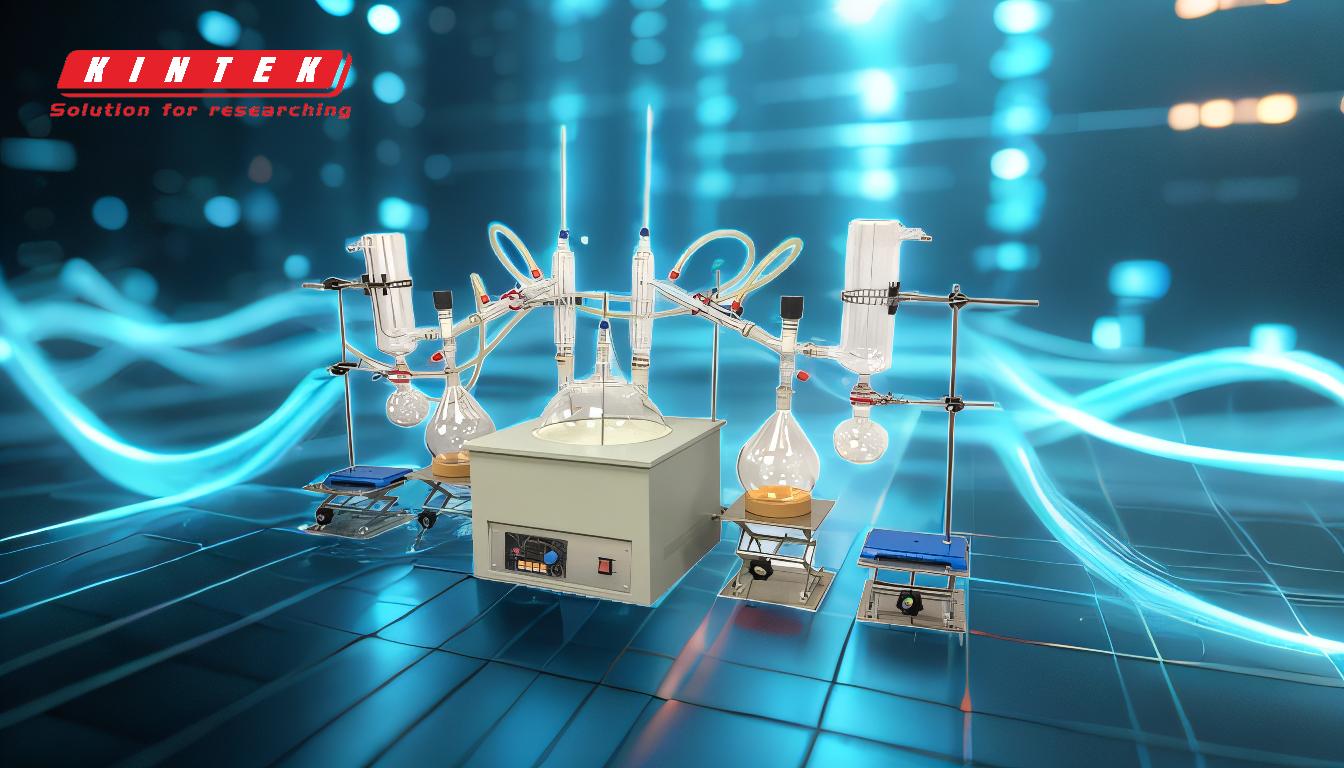Vacuum distillation is a highly effective separation technique that offers numerous advantages, particularly for compounds with high boiling points or those prone to thermal degradation. By reducing the surrounding pressure, vacuum distillation lowers the boiling points of liquids, enabling distillation at lower temperatures. This process minimizes the risk of decomposition, preserves the integrity of temperature-sensitive components, and enhances the purity of the final distillate. Additionally, it is cost-effective, scalable for industrial applications, and allows for efficient separation of complex mixtures, making it a preferred method in industries ranging from desalination to cannabis extraction.
Key Points Explained:

-
Lower Boiling Points and Reduced Thermal Degradation
- Vacuum distillation operates under reduced pressure, which significantly lowers the boiling points of liquids. This allows distillation to occur at much lower temperatures compared to standard atmospheric conditions.
- Lower temperatures prevent thermal degradation of heat-sensitive compounds, preserving their chemical structure and functionality. This is particularly beneficial for organic compounds, pharmaceuticals, and cannabis-derived products like THC, which can degrade at high temperatures.
- By avoiding excessive heat, vacuum distillation ensures higher purity and quality of the final distillate.
-
Enhanced Separation of High-Boiling-Point Compounds
- Vacuum distillation is ideal for separating mixtures containing compounds with extremely high boiling points (above 392°F or 200°C) that would otherwise decompose at their normal boiling temperatures.
- The reduced pressure enables these compounds to vaporize at lower temperatures, facilitating their separation without degradation.
- This method is often combined with fractional or steam distillation to improve the separation of aromatic or closely boiling compounds.
-
Improved Purity and Yield
- The controlled environment of vacuum distillation minimizes the risk of contamination and unwanted reactions, resulting in high-purity distillates.
- The process reduces the mean residence time of compounds in the distillation column, further preventing degradation and improving yield.
- Industrial-scale vacuum distillation can achieve higher capacity and purity while reducing the formation of byproducts or polymers.
-
Cost-Effectiveness and Scalability
- Vacuum distillation is a cost-effective method compared to other separation techniques, particularly for large-scale industrial applications.
- The reduced pressure allows for smaller distillation columns, decreasing capital costs related to equipment size and construction.
- Although operating costs may be slightly higher due to the need for vacuum systems, the overall efficiency and yield improvements often offset these expenses.
-
Versatility Across Industries
- Vacuum distillation is widely used in various industries, including desalination, petrochemicals, pharmaceuticals, and cannabis extraction.
- In desalination, it efficiently removes salt from seawater to produce fresh water.
- In cannabis distillation, it ensures the production of high-purity, fully decarbed products like THC without thermal degradation.
- Its adaptability makes it suitable for both small-scale laboratory applications and large-scale industrial processes.
-
Safety and Environmental Benefits
- The lower operating temperatures of vacuum distillation reduce the risk of hazardous reactions or explosions, enhancing safety in industrial settings.
- The process minimizes energy consumption and environmental impact by requiring less heat compared to traditional distillation methods.
- The ability to conduct distillation without heating in some cases further reduces energy requirements and operational risks.
-
Efficient Separation of Close-Boiling Mixtures
- Vacuum distillation enables the separation of compounds with very close boiling points, which would be challenging to separate under standard atmospheric conditions.
- The reduced pressure creates a more favorable equilibrium for separation, often requiring fewer equilibrium stages in the distillation process.
- This efficiency translates to higher throughput and better resource utilization in industrial applications.
In summary, vacuum distillation is a versatile, efficient, and cost-effective method for separating high-boiling-point or heat-sensitive compounds. Its ability to operate at lower temperatures preserves the integrity of the distillate, enhances purity, and reduces energy consumption, making it an indispensable technique across multiple industries.
Summary Table:
| Advantage | Description |
|---|---|
| Lower Boiling Points | Reduces boiling points, enabling distillation at lower temperatures. |
| Reduced Thermal Degradation | Preserves heat-sensitive compounds like THC and pharmaceuticals. |
| Enhanced Separation | Ideal for high-boiling-point compounds and close-boiling mixtures. |
| Improved Purity and Yield | Minimizes contamination and degradation, ensuring high-purity distillates. |
| Cost-Effectiveness and Scalability | Reduces equipment costs and is scalable for industrial applications. |
| Versatility Across Industries | Used in desalination, petrochemicals, pharmaceuticals, and cannabis extraction. |
| Safety and Environmental Benefits | Lowers energy consumption and reduces operational risks. |
Ready to optimize your separation process? Contact our experts today to learn more about vacuum distillation solutions!











